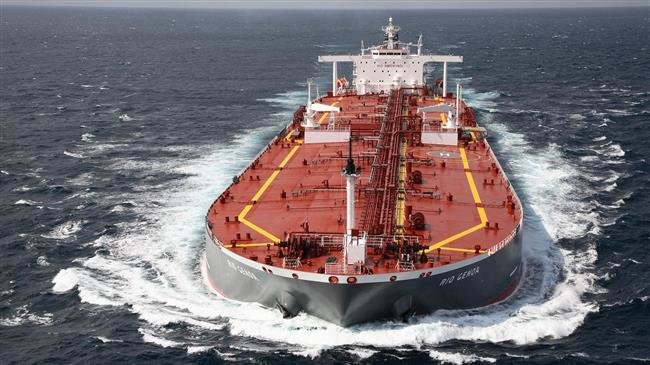Iran oil sales still strong ahead of sanctions


Market figures show that Iran’s oil sales are still powerful only a few days before the US wages a second wave of sanctions that would target the country’s oil exports.
Figures released by investment banks, tanker-tracking firms and the International Energy Agency showed that Iran was selling roughly 1.7 million to 1.9 million barrels per day of crude oil and condensate, a super light form of oil, in September.
Iran’s First Vice President Es’haq Jahangiri said on Sunday that the US was unable to prevent the country from selling crude oil to international clients.
Jahangiri also emphasized that Iran had devised mechanisms to counter the impacts of US sanctions.
The administration of US President Donald Trump is preparing to launch a series of sanctions against Iran from November 4 in which a universal ban on the country’s oil exports appears to be a primary objective.
US officials have already said the sanctions would be meant to bring down Iran’s oil exports to zero. However, Iranian officials have repeatedly rejected the feasibility of this, stressing that international consumers cannot afford to lose Iranian supplies.
Iran was selling around 2.8 million barrels per day in June, the CNBC said in a report quoting ClipperData – a provider of crude oil and petroleum product cargo tracking solutions for energy producers, refiners and trading companies.
In the first six months of the year, Iran was averaging 2.4 million barrels per day in shipments, the report added, quoting figures provided by S&P Global Platts Analytics.
Several major clients of Iran’s oil – including India, China and Turkey – have voiced defiance against Iran oil sanctions, and emphasized that they would resist Washington’s call to end their oil purchase plans from Iran.
The three countries, as reported by media, already argued that there were not sufficient supplies worldwide to replace Iranian oil volumes.
There have been speculations tensions around Iran’s sanctions have split Trump’s administration into two camps. One is led by National Security Adviser John Bolton, who wants the toughest possible approach, and another by State Department officials keen to balance sanctions against preventing an oil price spike that could damage the US and its allies.
Because of the concern over oil prices, a source recently told Reuters, the administration is considering limited waivers for some Iranian customers until Russia and Saudi Arabia add additional supply next year, while limiting what Tehran can do with the proceeds in the meantime.









